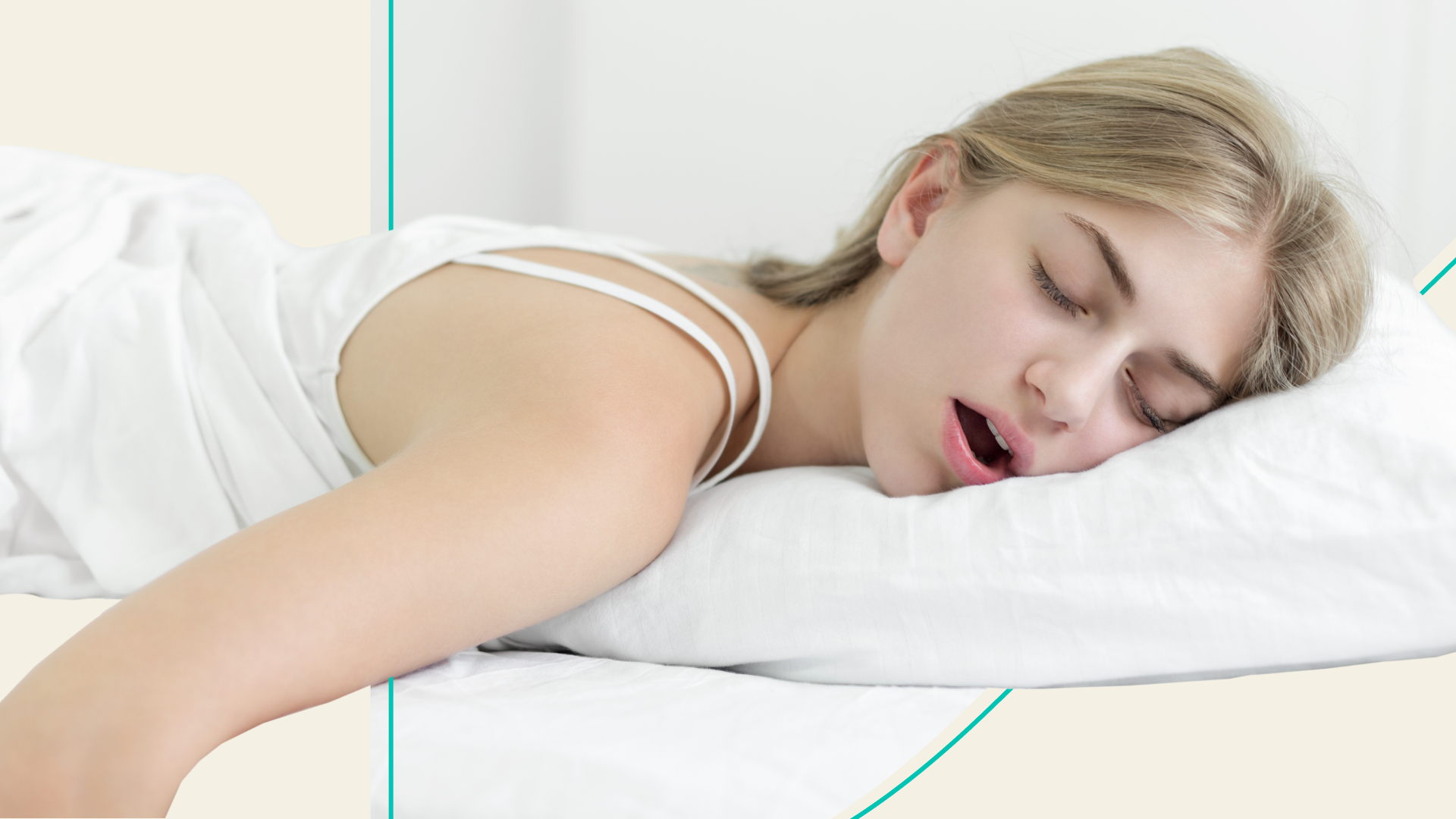Mouth taping might sound like a, ahem, kinky trend. But it’s actually the latest wellness technique making the rounds on TikTok. The goal: to get you to breathe through your nose, instead of your mouth, while you sleep.
“In general, breathing through our nose is healthier for the body,” said Dr. Julia Kogan, a health psychologist and sleep coach. Mouth taping is supposed to help you get a good night’s sleep along with other potential benefits (think: improved oral health and fewer asthma symptoms). But experts warn it can also be harmful if done incorrectly.
What is mouth taping, and why would I want to try it?
The process is actually self-explanatory: You place a piece of porous tape horizontally over your lips before bed to keep it shut. And keep it on throughout the night.
“There is some evidence that nostril breathing is beneficial from a cardiovascular standpoint…but also [for] your sleep and reducing some of your snoring,” said Rebecca Robbins, Ph.D, a sleep researcher, instructor at Harvard Medical School and co-author of “Sleep for Success!” But she says that doesn’t necessarily apply to people who have sleep apnea (a potentially serious sleep disorder that may require medical treatment).
Nose-breathing could potentially also protect against gingivitis (gum disease) and dry sinuses. It could help people with chronic lung diseases, too. Because inhaling through the nose humidifies the air you are breathing, which is better for the lungs, while also catching more allergens, dust, and other irritants than when mouth breathing.
How do I try mouth taping?
First thing’s first: You should talk to a medical professional because the science behind this technique is still lacking, Dr. Kogan said.
Once you have your doctor’s approval:
Find the right kind of tape. Avoid heavy-duty tape because that could cause allergic reactions or other irritation to the skin. Porous tape, the kind meant for human skin, might be your best bet, Dr. Kasey Li, an otolaryngologist specializing in sleep apnea surgery, told Forbes. This kind of tape lets moisture pass through and keeps the skin cool. There are specific sleep tape products for sale out there. But surgical tapes might also work. Reminder: not all surgical tapes are hypoallergenic.
Put petroleum jelly on your lips and the surrounding skin to help prevent any potential irritation.
Stick the tape over your lips, making sure it covers your whole mouth (and some of the area around your lips).
You mentioned skin irritation, but are there other risks associated with mouth taping?
Anxiety: Taping your mouth could make you feel constricted, and lead to anxiety or nervousness.
Difficulty breathing: If your nose or sinuses are congested, mouth taping may make it difficult to breathe through your nose with ease.
If sealing your mouth isn’t quite your cup of (bedtime) tea, consider some alternatives that might also help improve your sleep, like laying on your side, using nasal strips, breathing exercises, and cutting down on alcohol and caffeine.
theSkimm
If you’re struggling to get some solid Zzz’s, you’re probably willing to try just about anything. And mouth taping might just be that thing. But while there may be some benefits to it, there are also risks to consider. Sweet dreams.
Subscribe to Skimm Well
Sign up here to receive our wellness newsletter filled with actionable advice, expert-vetted content, product recs, and more — delivered directly to your inbox.
